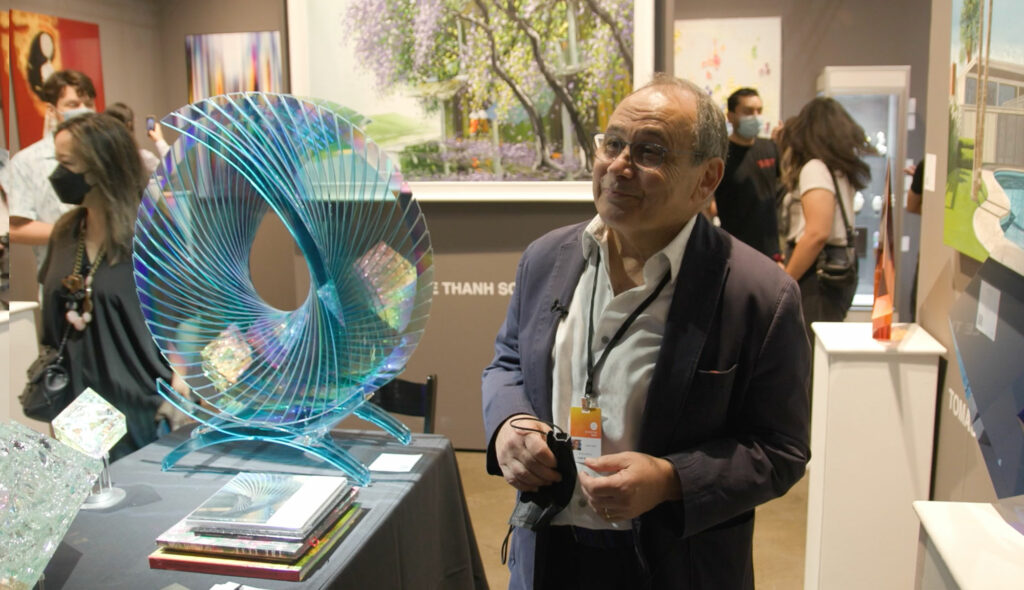Interview: Glenn Aber
Let's start with your name and the name of the gallery.
I did nothing for 10 years, was going out of my mind, then read an article in The New York Times Arts and Leisure section about the art coming out of Vietnam. I said to my wife, “Come on, we’re going to take a ride to Hanoi.” I go to Hanoi, hired an art agent. Long story short, first day out we buy 15 paintings, within two years, we have 250 paintings. My wife’s getting annoyed with me, “Glenn, there’s art all over the house. You’re a businessman, make a business out of it.” Here we are 15 years later.
And what type of artist do you represent in their mediums?
The art that I represent is all art that I personally would hang in my home. I can’t exhibit or sell art that I don’t think has the quality and the talent of the artist represented. I look for artists that have a unique ability to express themselves in a way that you won’t see in every gallery that you walk into.
What does success look like for you as a business owner of an art gallery?
Why do customers come in and buy artwork from you?
Well, through the 15 years, I’ve established a nice client base. They come to me for a number of reasons. They don’t come to me because I’m good looking. They come to me because they trust me. They like the work that I have. I give them a fair price. And that’s basically the formula for establishing relationships with people who are interested in buying art. And it continues to grow and expand—through word of mouth, one person speaks to another as in any business, and you build up a network of people involved in the industry.

What does the future look like for art galleries?
I think the future is probably threefold. The internet will become more and more important. I started emphasizing the internet about four years ago—a little bit of dumb luck prior to COVID, where the internet really took off. And as younger people get a little older and they have disposable income, they want to start buying art. It’s a lot easier for younger kids, I have three kids all in the 30s, it’s easier for them to buy something including art on the internet. So the internet is going to become much more important. Older people need to feel it, touch it, look at it, whatever. Younger people will use the internet.
That’s important. I think, secondly, the shows will maintain relevance and a sense of importance but I believe the number of shows that you have during the year will decrease. I think there’ll be a joining of forces with certain shows. And I also think it’s important to keep your overhead to a minimal. I think physical, as they say, brick and mortar place, shops will become less important. There’s other less expensive ways to sell art in a more effective way. That’s probably the future. For whatever it’s worth, that my two cents.

